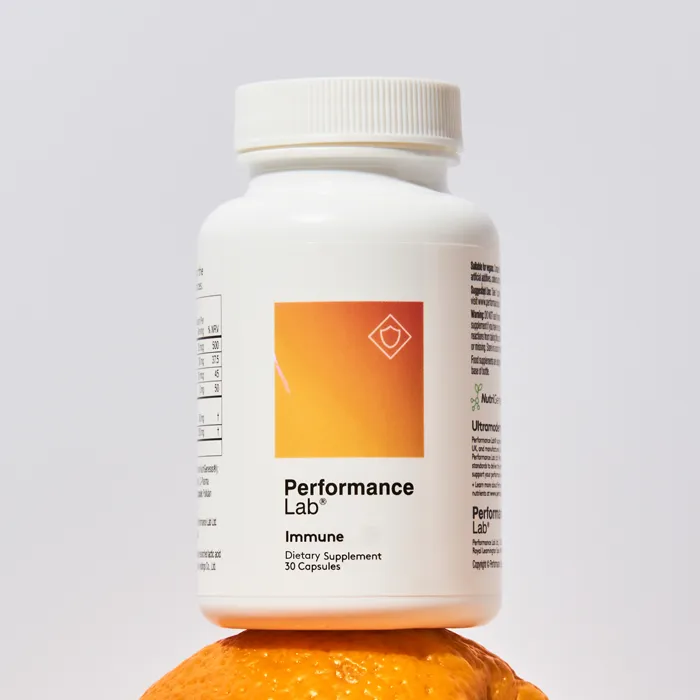Here’s a little introduction to glutathione…
It’s the master antioxidant.
Yep, we know. Bold statement.
But there’s good reason for this. Because not only does glutathione help neutralize age accelerating free radicals. It also regenerates other antioxidants to fight another day in the battle against oxidative damage.
It’s the all-round hero of good health.
But it does so much more than that.
We’ll outline everything you need to know about glutathione, how long you’ll need to take it before you can expect to see results, and other ways to naturally support your glutathione levels.
Key Takeaways
- Response time varies by status, dose, and form (e.g., precursors, liposomal); many notice benefits over 2–8 weeks.
- Goals differ—antioxidant status, skin tone, recovery, or immune support may follow different timelines.
- Consistency, sleep, and overall diet strongly influence results.
- Combine with vitamins/minerals that support endogenous glutathione pathways.
- Discuss labs and protocols with a clinician if you have medical conditions or take medications.

The Role of Glutathione In The Body

As we mentioned, glutathione (GSH) is a powerful tripeptide composed of three amino acids—cysteine, glycine, and glutamine. Its major role is as an antioxidant(1), involved in the elimination of free radicals and the detoxification of the liver through liver glutathione.
It is produced within the body and found in high concentrations in several tissues. Playing key roles in various physiological processes involved in maintaining good health and preventing disease pathophysiology, some of these include(1):
- Redox balance
- Reducing oxidative stress
- Supporting metabolic detoxification
- Regulating immune system function
While everyone's body naturally produces glutathione, individual levels can vary significantly. This variation is largely influenced by genetic differences in the enzymes responsible for its production and regeneration(1).
Additionally, when the body is exposed to high oxidative stress, malnutrition, or an increase in toxic load from environmental contaminants, the need for glutathione increases. Without adequate support, GSH levels can decline(2). If these levels remain chronically low, it can contribute to the development or worsening of various disease states, including:(3, 4)
- Premature aging (and aging in general)
- Neurodegenerative disorders
- Cancer
- Cognitive impairment
- Diabetes
- HIV/AIDS
- Autoimmunity
- Infertility
- Mental health disorders
- Hypertension
- Fatty liver disease
That doesn’t cover the full spectrum, but it gives you a pretty good idea of how important glutathione is. Which means that if your body isn’t producing enough on its own, supplementing with it is key to maintaining health.
Forms and Uses of Glutathione Supplements

When asking how long it will be before we see results, we need to take into account that glutathione supplements come in several forms. And the outcome you wish to see will be dependent on the form you take.
Each form has its own method of administration, level of absorption, and specific uses.
1. Oral Glutathione Supplements
- Forms: Capsules, tablets, and liquids.
- Administration: Taken by mouth, these supplements are absorbed through the digestive system.
- Uses: Commonly used for general antioxidant support, detoxification, and improving skin health. However, the bioavailability of oral glutathione is relatively low, as a significant portion may be broken down in the digestive tract before it can be absorbed into the bloodstream.
2. Liposomal Glutathione

- Form: Oral liquid or softgel capsules containing glutathione encapsulated in liposomes.
- Administration: Taken orally, this form is designed to protect glutathione from digestive enzymes, enhancing absorption.
- Uses: Provides a more efficient delivery system for antioxidant support and detoxification, offering quicker and more potent effects compared to standard oral forms.
3. Intravenous (IV) Glutathione

- Form: Sterile liquid solution administered by a healthcare professional.
- Administration: Delivered directly into the bloodstream via an IV drip, bypassing the digestive system entirely.
- Uses: Often used in clinical settings for acute detoxification, managing oxidative stress, and improving skin brightness. It provides immediate availability and rapid effects, making it ideal for situations where fast results are needed.
4. Sublingual Glutathione
- Form: Tablets or sprays designed for absorption under the tongue.
- Administration: Placed under the tongue, where it is absorbed directly into the bloodstream through the mucous membranes.
- Uses: Offers a quicker and more efficient absorption than traditional oral forms, providing general antioxidant support and mild detoxification without the invasiveness of IV administration.
5. Topical Glutathione
- Form: Creams, lotions, and serums.
- Administration: Applied directly to the skin.
- Uses: Primarily used in skincare to reduce oxidative stress, brighten the skin, and manage pigmentation. Its effects are localized, making it less effective for systemic antioxidant support but useful for addressing specific skin concerns.
How Long Does Glutathione Take To Work?

The length of time before you see the effects of glutathione, is going to depend on a few factors:
- Form
- Administration root
- Dosage
- Current glutathione status
Let's take a look at how quickly different forms of glutathione may start to show effects.
Oral Glutathione
Oral supplements, due to their lower bioavailability, may take longer to show noticeable results.
Research suggests that in healthy adults, consistent supplementation for six months at doses of 250mg/day or 1000mg/day can lead to significant increases in glutathione levels.(5)
These increases were associated with a marked decrease in oxidative stress and improvements in immune function, as indicated by a better oxidized (GSSG) to reduced (GSH) glutathione ratio and increased natural killer cell activity.
Liposomal Glutathione
Liposomal glutathione, with its enhanced absorption, may yield faster results.
A study indicated that supplementation with 500mg or 1000mg/day of liposomal glutathione for four weeks showed trends toward increased glutathione levels in several tissues, with significant improvements seen after just two weeks.(6)
This form may be particularly beneficial for those seeking quicker effects from their supplementation.
Intravenous (IV) Glutathione
Glutathione IV therapy and glutathione injections offer immediate benefits, making them the fastest-acting forms. Users often experience a rapid improvement in skin brightness, antioxidant effects, and detoxification.
However, the effects may require repeated treatments for sustained results. The cost of therapy can also vary based on the quality of the injections and the number of sessions required.
Sublingual Glutathione
Sublingual glutathione provides a middle ground between oral and IV forms in terms of absorption speed and effectiveness.
Effects are generally noticeable within days to a few weeks, faster than standard oral supplements but potentially slower than IV administration.
Topical Glutathione
For topical application, results typically manifest within a few weeks of regular use. However, these results are usually limited to skin health improvements, such as reduced pigmentation and increased brightness, rather than systemic effects.
Learn more about glutathione dosages
It would appear that there is no set timeframe on seeing results with glutathione supplements. It all comes down to the form used, dosage, and individual health factors.
That said, based on available research, two weeks appears to be the minimum supplementation time before you can expect to see it working.
Other Ways To Support Glutathione Levels

There's no doubt, glutathione acts as a powerful antioxidant. It plays a crucial role in overall health and well-being. And if you want to see improvements faster, you can try optimizing glutathione production with key nutrients. Here are our top recommendations:
N-Acetyl cysteine (NAC)
NAC is a crucial building block for glutathione because it provides cysteine, the amino acid that is essential for glutathione production.
Ensuring your body has enough cysteine helps maintain optimal glutathione levels. Research also suggests that NAC can help reduce some of the issues related to oxidative stress.(7)
Dietary protein
As the three precursors and foundation of glutathione production are amino acids, dietary protein intake may influence the amino acid pool that glutathione synthesis draws on (8). Studies suggest that changes to protein consumption may alter glutathione production and contribute to a decrease in antioxidant capacity.
Omega-3 fatty acids
Chronic inflammation increases oxidative stress and can contribute to decreased glutathione levels(9). Because of their role in producing anti-inflammatory compounds, it’s suggested that supplementation with omega-3 fatty acids can help to support the maintenance of normal glutathione levels.
Vitamins and minerals
Certain nutrients, such as B vitamins, vitamins C and E, selenium, alpha-lipoic acid, and compounds found in cruciferous vegetables, play a key role in reducing oxidative stress and supporting the production and regeneration of glutathione.
Together, these nutrients help maintain healthy glutathione (GSH) levels and enhance the body’s overall antioxidant defense system.
The Best Supplements to Support Glutathione Production
Performance Lab® Immune
Immune provides 250 mg of Setria® Glutathione.
This form in particular, has been clinically proven(10) to increase glutathione levels in the body and support immune function.

This increase in glutathione protects the body from oxidative damage and regenerates vitamin C and E, two powerful antioxidants.
Other ingredients include zinc and vitamin D for immunity. Vitamin C and selenium to support the production of glutathione, and LC-Plasma (Immuse™), a science backed probiotic for immune support.
The key to the efficacy of any glutathione supplement, is the bioavailability, dosage and clinical evidence behind the product. Immune uses therapeutic, research-backed doses in highly bioavailable forms.
Performance Lab® NutriGenesis® Multivitamin
If you want to optimize glutathione production, adding a good quality multivitamin to your supplement stack will help.
Vitamins B, C and E, as well as Selenium and zinc are essential for producing and regenerating glutathione in the body.
Performance Lab® NutriGenesis® contains research-backed dosages of 24 vitamins and minerals (including the ones you'll need for glutathione support) in highly bioavailable forms.

Performance Lab® NutriGenesis® is different to other multivitamins.
It's based on Nobel Prize-winning research.
This research theorized that nutrients presented in their naturally grown forms supply cofacters that make them more bioavailable, biologically active, and therefore more effective than nutrients that are isolated. Meaning your body recognizes and utilizes the good stuff instead of immediately flushing it out.
Shop Performance Lab® NutriGenesis®
Final Thoughts
Waiting for your supplements to work can seem like a forever thing, but the truth is that in most cases, they’re working behind the scenes to clean up inside before you actually see anything on the surface.
Generally speaking, a few weeks of supplementing is sufficient for you to start seeing some results, but if you want to reap maximum benefits, taking them daily is the most ideal.
The right combination of nutrients will provide the optimal environment for glutathione to thrive.
References
- Minich DM, Brown BI. A Review of Dietary (Phyto) Nutrients for Glutathione Support. Nutrients. 2019 Sep 3;11(9):2073. doi: 10.3390/nu11092073. PMID: 31484368; PMCID: PMC6770193.
- AL López-López, HB Jaime, MDC Escobar Villanueva, MB Padilla, GV Palacios, FJA Chronic unpredictable mild stress generates oxidative stress and systemic inflammation in rats.Physiol Behav. 2016;161:15-23.
- Franco R, Schoneveld OJ, Pappa A, Panayiotidis MI. The central role of glutathione in the pathophysiology of human diseases. Arch Physiol Biochem. 2007 Oct-Dec;113(4-5):234-58. doi: 10.1080/13813450701661198. PMID: 18158646.
- N Ballatori, SM Krance, S Notenboom, S Shi, K Tieu, CL Hammond. Glutathione dysregulation and the etiology and progression of human diseases.Biol Chem. 2009;390(3):191-214.
- JP Richie Jr, S Nichenametla, W Neidig, et al. Randomized controlled trial of oral glutathione supplementation on body stores of glutathione. Eur J Nutr. 2015;54(2):251-263.
- R Sinha, I Sinha, A Calcagnotto, et al. Oral supplementation with liposomal glutathione elevates body stores of glutathione and markers of immune function.Eur J Clin Nutr. 2018;72(1):105-111.
- Q Zhang, Y Ju, Y Ma, T Wang. N-acetylcysteine improves oxidative stress and inflammatory response in patients with community acquired pneumonia: A randomized controlled trial. Medicine (Baltimore). 2018;97(45):e13087.
- AA Jackson, NR Gibson, Y Lu, F Synthesis of erythrocyte glutathione in healthy adults consuming the safe amount of dietary protein.Am J Clin Nutr. 2004;80(1):101-107.
- I Rahman. Inflammation and the regulation of glutathione level in lung epithelial cells. Antioxid Redox Signal. 1999;1(4):425-447.
- Richie JP Jr, Nichenametla S, Neidig W, Calcagnotto A, Haley JS, Schell TD, Muscat JE. Randomized controlled trial of oral glutathione supplementation on body stores of glutathione. Eur J Nutr. 2015 Mar;54(2):251-63. doi: 10.1007/s00394-014-0706-z. Epub 2014 May 5. PMID: 24791752.
















